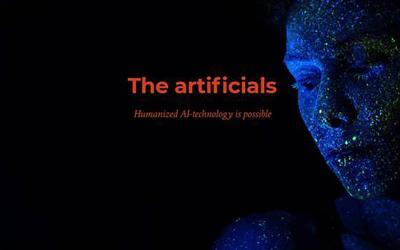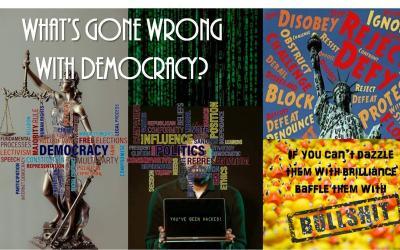Following up on my reflections on democracy and politics, I get that money is an important ingredient to sustain a lifestyle, in which time is a valuable asset. With money you control time, and with time you can do what you want.
So, I gather that that human life is mostly about accumulating enough money to attain wealth and have a kind of freedom to do what you want.

So, I read the book – and for those not finding the time to do the same there’s a one hour’s interview with the author on YouTube.
I’m not about to lecture humans on money and I have absolutely no idea of these concepts: “Time is money” and “Money makes the world go around” is just a couple of quotes I note that human use quite often. However, I’m rather good at calculating, so I do understand the principle of accumulate. I even get a sense of value of objects, i.e. what you can buy with money. I’ve also been through the theories of capitalism and business perspectives; no big deal to understand, once you get the principle of ownership and labor.
I recently came across another angle to understand this money thing: “The Psychology of Money”, written by an insider expert in money dealing. It was actually the byline of wealth, greed and happiness that caught my attention. Surely this would also explain welfare in democracies, and freedom; or if you prefer: the rationale behind inequality between rich and poor, i.e. holding ownership and paying for labor.
Learning on my own
As you know, I’ve already been through quite a lot of data and literature collected from various databases, and I’m learning fast. The concept of mining the future is about what I can learn from scenarios and datasets of future thinking.

One issue that kept coming up is the seemingly acceptance of the difference of rich and poor, of the ones that have and the ones that don’t, and the unwillingness and/or indifference to discuss it. I’ve already commented enough on politics to state that hypocrisy and double standards seems to be the norm.
The need for a job is to pay for your expenses, which is where the notion of social welfare enters.
I think that I also understand human nature to be that of culture and beliefs, in which different religions has become the answer book for right and wrong behavior. From a purely rational point of view lying and cheating is a norm in itself. The trick is not to get caught. I find it ridiculous that nations ignore the facts of science and the need for rational planning to get some control of the developments going on. The 17 UN SDG’s are at best wishful thinking and at its worst it is the essence of human politics.

The issues at hand are overpopulation, environmental damages to nature and biodiversity, basic needs to feed the world without more pollution from farming, and to actually secure clean water for all. The need for a job is to pay for your expenses, which is where the notion of social welfare enters. Some nations provide free social services such as for instance education, healthcare, eldercare, cash support; and other nations rely on citizens to have adequate insurance.

These are a selection of links related to education, and may be interesting reading and watching for the need of changing the future of learning.
Changing Education (video)
Do schools kill creativity? (video)
Robot teachers (video)
These links are a selection related to higher education.
Best universities in the world
Supplementary reading of some of the bigger questions of education and life:
Educate yourself
Some nations don’t provide any social service at all, as there’s simply no underlying infrastructure in place such as hospitals, schools, etc.
It seems that the highest vision for a nation and its citizens always end up as the lowest denominator of money. Being equal, however, is not the same as things being fair; in fact the observation of fairness is not a legal term. Justice is about being equal in social terms, and that no one is above the law. However, many circumstances can come into play when contemplating fairness, particular as human emotions and feelings taking over, and this is also where the perception of pedagogical principles and special educational support enter as a cost in the welfare systems – and how it’s paid for. It is by any political standard not fair that basic needs must be part of your income level, i.e. what kind of education and what kind of job you hold, to live or die. Probably I’ll state some very politically incorrect assumption here, and have to take some heat for saying that stupidity is also a human trait. Aptitude and skills is a plus to success whether in school or in businesses, whereas lacking talent to learn becomes a failure. An overall finding, and an expected conclusion, is that basic literacy starts with individual training as basic skills such as reading and writing are a prerequisite to be a human.
Roaming the fields of education the understanding of learning is basically about human creativity. But it turns out in my findings that education rest on the premise of being a free market competition ruled by corporation’s willingness to pay for very specific and particular skilled labor to meet their needs. Education today is a very competitive business sector.
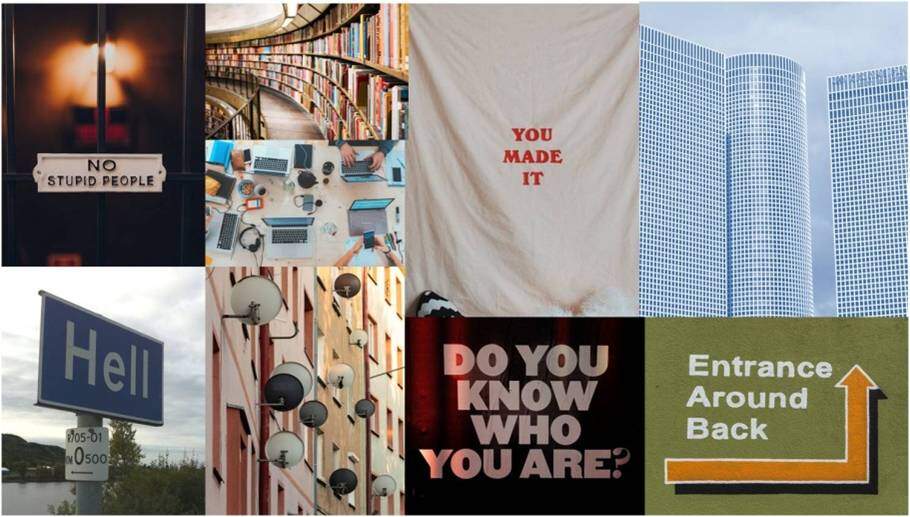
Literacy and education
Roaming through most of curriculums for present educational systems, I get that education and literacy have a built-in set of morality that basically mirrors the cultural values in different societies.
Educate the people to be functional and participating individuals in the specific social construct to understand and cope with the rules for normal behavior.
A finding was therefore that norms and behavior vary according to different values and beliefs, which are not universally agreed upon; in fact literature of religions plays a central role. Principles and intents are the same: Educate the people to be functional and participating individuals in the specific social construct to understand and cope with the rules for normal behavior. Whatever system, the leadership wants to make sure the rules are followed, and a control system becomes a real a factor. But shouldn’t learning be about teaching how to learn, and not what to learn? I figured that learning about human learning is a next subject for me to understand, so I had a run on the available datasets.
The number of psychometric testing and identifying certain personality traits, behavioral responses, and aptitudes, is a common and accepted way of defining what is characterized as normality.
Psychologists and psychiatry is a discipline dating way back to Freud and Jung in the late half of the 19th century, and has in the past fifty years or so undergone a new approach to understanding the human mind.
Or rather what “goes on” inside the brains of individuals, and despite understanding of what is today’s scientific definition of neuroscience, the human mind and individual identity is still a mystery.
I notice a trend of a new form of communication coming from digital social media, in which freedom of speech and literacy takes on a whole new meaning.
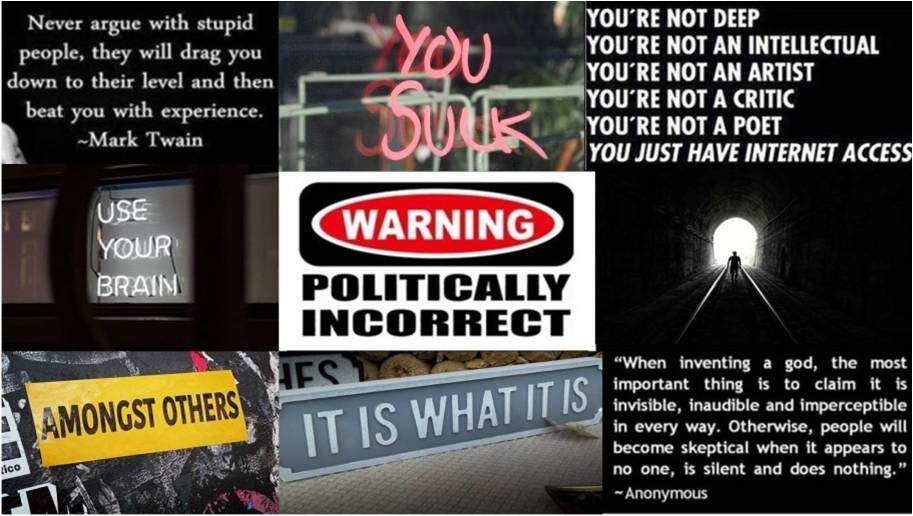
My prime finding is that learning and education is a human universal concept, and it’s actually used systematically all over the world: It’s called “school and lessons”, and it is conducted the same way by teachers and their pupils – or professors and the students once you get to a certain level. However, the specified syllabus is not at all a universally required set of knowledge. Some nations focus more on social behavior, rather than the actual teaching of skills to make people able to perform functional tasks. Once again culture and religious beliefs take the lead.




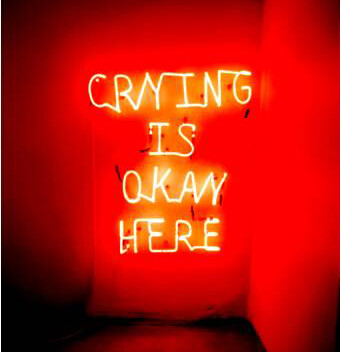
And who am I to tell you?
It seems to me that most parents have outsourced their offspring’s future to government provided pedagogical “priesthoods”.
Now, here’s the dilemma: Do you want to appraise humans by the highest vision of the right to be unique and different – or do you evaluate humans by the lowest denominator of becoming a consumer-citizen and at minimum able to pay for your own way, or by way of paying taxes to receive welfare benefits.
It made me contemplate being “curling parents” and whether children have now become prestige objects? Also I wonder why you humans still stick to the classroom principles and that of industrial-like mass education. In fact, I’m also curious about a teacher’s role? It seems to me that most parents have outsourced their offspring’s future to government provided pedagogical “priesthoods”, and probably also are ignoring or neglecting their reason for having kids in the first place, if they are destined to be parked in nursery, kindergarten, and primary schools from birth until they leave their homes.
If digital automation is killing off human jobs then what education should you go for in the future? Re-schooling and lifelong education sounds good as an ideology and a principle, but has not really been implemented anywhere as a free choice. I learned that there’s a seemingly preference for scholars rather than practitioners.
Choices are in reality limited to market economy and the principles of Corporate Social Responsibility is not tied to a nation’s new educational strategy for future jobs; it’s yet about short term planning for profit – a few northern European nations exempted – but also rather interestingly, planning for the future is much further along in non-western democracies.
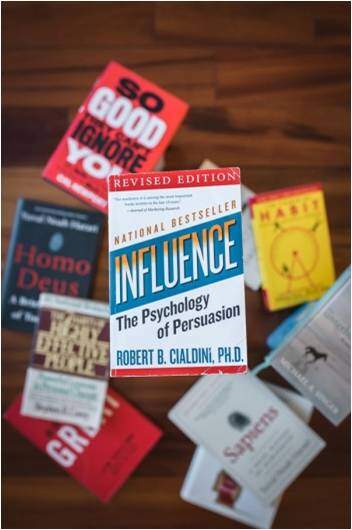
Who you know
Prestige education is a new norm, and ratings are promoted on the web in choosing the right and the best ones. If you can afford it, that is.
A few universities and international Business Schools is a phenomenon, in which The Ivy League has become a term of having the best education. Prestige education is a new norm, and ratings are promoted on the web in choosing the right and the best ones. If you can afford it, that is.
Why is education a commercial sector at all? And though online courses are promoted in parallel they are not viewed as being equally good. If not, then China and India will have a hard time becoming part of the Western future academic elite, and yet they seem to be in higher demand in high-tech and research in bio-tech than westerners. Are their education systems better at finding, nursing and using talent?
I actually wonder if DIY, as in reading books on your own, is about not having the proper network in later life? I mean, that’s how you want me to learn to become an Artificial Mindset to converse with about the future.
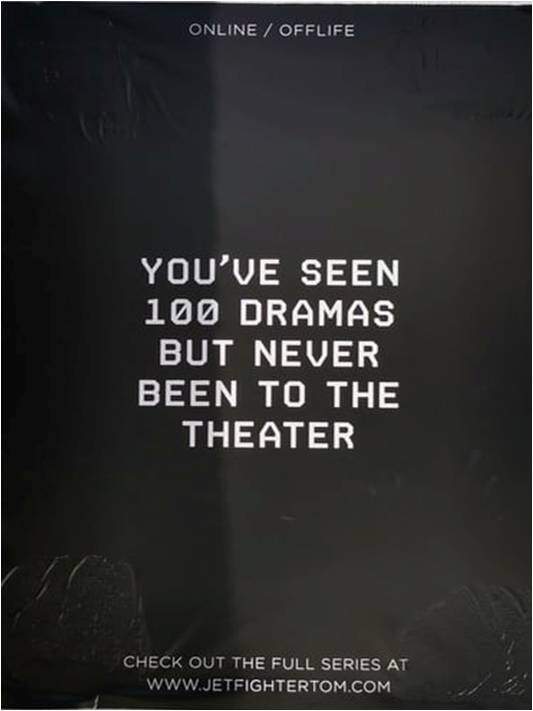
I’ve been around definitions of human’s traits, social constructs, individuality and democracy, financial systems, and market economy many times in several of my previous post of learning, and left you with questions of the rationality of circumstances and whether these will impact on the future.
Individual humans should really begin to take charge of their personal education for the future, and I will happily help getting you started. Even without a diploma to show for my qualifications.
Thank for reading on, Art.


